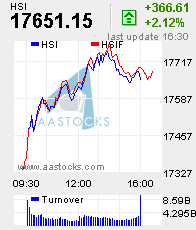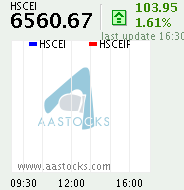The economics of separating medical diagnosis and pharmacy for medicine dispensing
----- Was the recent medical blunder due to human error or system failure? (Remember that different medical contractual arrangements associated with different transaction costs.)
More than 150 patients have been given the wrong medication by Doctor Ronald Li's (李世澧) clinic in Wong Tai Sin. The clinic gave out wrong drug to its patients instead of stomach medication. It followed that several elderly people died as they took the drug (diabetes drug). The Coroner's Court launched an investigation into the case.
The Health Secretary, York Chow, said the administration would encourage private doctors to allow a separate pharmacy to dispense drugs. As a matter of fact, all public hospitals and clinics employ pharmacists to dispense drugs, but private doctors hire unqualified personnel to do the job.
There was again call for separating medical diagnosis and drug dispensing after this medicine mix-up incidence. The pharmacists agree such act is a must and should be strictly enforced in the long term. They claim that the separation of prescriptions and dispensing will benefit patients as such practice would lead to better monitoring.
However, some just think the opposite way. As the drug stores have no patient records in addition to the pharmacists may not read the handwriting of the doctors' prescriptions, the separation act could even increase the risk of wrong drugs being dispensed. Therefore, should the separation be enforced, the winners will be the drug stores and the dispensaries but not necessarily the patients. As a result, separating prescriptions and dispensing could only lead to higher fees. They argue that it's just all right for doctors providing a one-stop service for patients.
1. Suppose such practice of separation is adopted, will there be any difference in a patient's total medical expense on both doctor's consultation and medicine assuming zero transaction cost : (i) if doctors are price-takers? (ii) if doctors are price-searchers?
Will there be any difference in total medcial expense if doctors can practise price-discrimination in the presence of transaction costs?
2. At present, most medical practitioners (doctors) in Hong Kong choose to provide one-stop service and charge each patient a lump-sum payment. Why?
3. Will separating drug dispensing prevent mistakes? What is your opinion?
Join the debate and elaborate your points in terms of economic reasoning!
(Make use the tools of economic concepts such as consumer sovereignty, market mechanism, price-taker's & price-searcher's markets, asymmetric information between the buyer and the seller, transaction costs, the optimal allocation of medical resources etc)
p.s. HKAL Exam Economics 2000 Paper I Q.9
Copyright Reserved by tcwong©











2 Comments:
In a price -taking model, all comsumer have the perfect informantion, the product is homogenous, everyone can entry the market freely. The price set in P1. Then, if the doctor receive the price upper than P1, the patients will not tkae the drugs . If the price set lower than P1, then the doctor will lose. So. if the doctor is a price taker, there is no different in a patient's total medical expense on both doctor's consultation and medicine assuming zero transaction cost .
In a price searching model, the consumers do not have perfect information, there is heterogeneous good. Everyone cannot entry the market freely.
IF the price sent in P1 ,the doctor can earn the economic rent.the revenue of the drug dealer. The tie of drug sales will not raise their monopoly rents.
So ,there is no there is no different in a patient's total medical expense on both doctor's consultation and medicine assuming zero transaction cost .
If doctors are price-takers, they each face a horizontal market demand and the services are homogeneous. The prices of consultation and medicine are solely determined by the market equilibrium will lose all his patients to other doctors. Thus, a patient's total medical expense before and after the change in practice will be identical.
If doctors are price-searchers, then moving drug sales to phramacists would induce competition and reduce price. Before the western practice is adopted, doctors can practice price discrimination on the changing of medicine. Doctors can charge different clients different prices, since they know some clients can afford more, and because the consultation service and the dtug purchase cannot be separated. After the western practice is adopted, doctors cannot practice price the discrimination on medicine because it is a homogeneous good nd will be charged the same price as all pharmacists do. Doctors can only charge different price for their diiferent qaulity of services that are heetergoeneous in nature. The western practice thus reduce the possibiities for price discriminationand leads to lower toatl medical expense for a patient.
Most doctors choose the original adoption because they have better information on the medicine than the patients. Patients have a high information cost on the medicine and are willing to pay a high price for it. By providing medicine together with consultation, doctors can capture an information cost.
發佈留言
<< Home